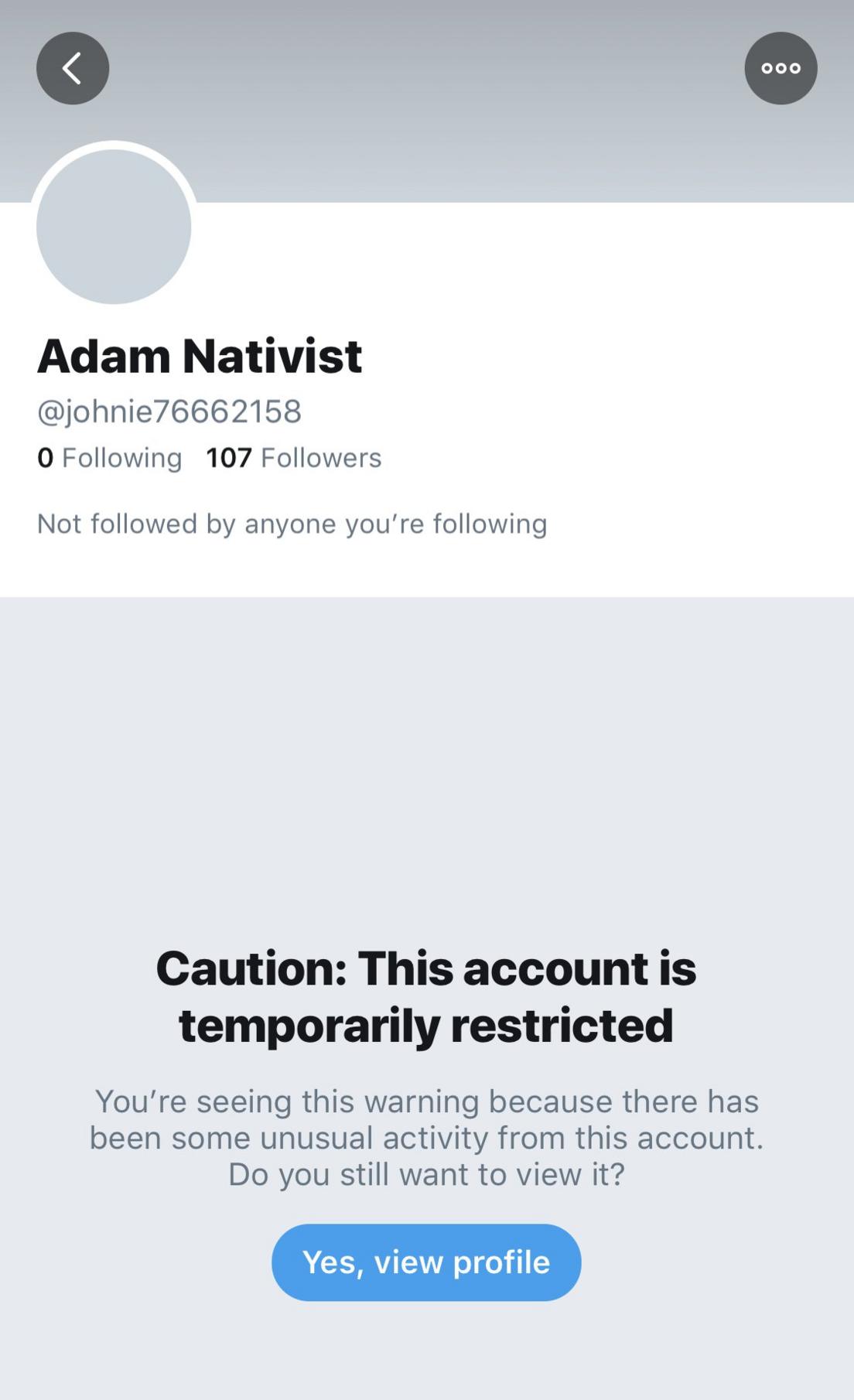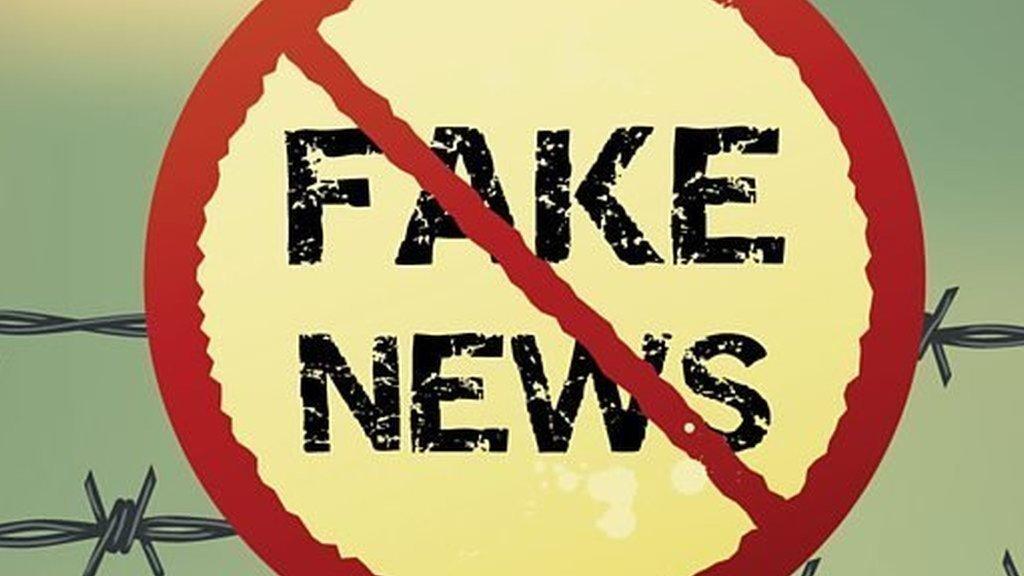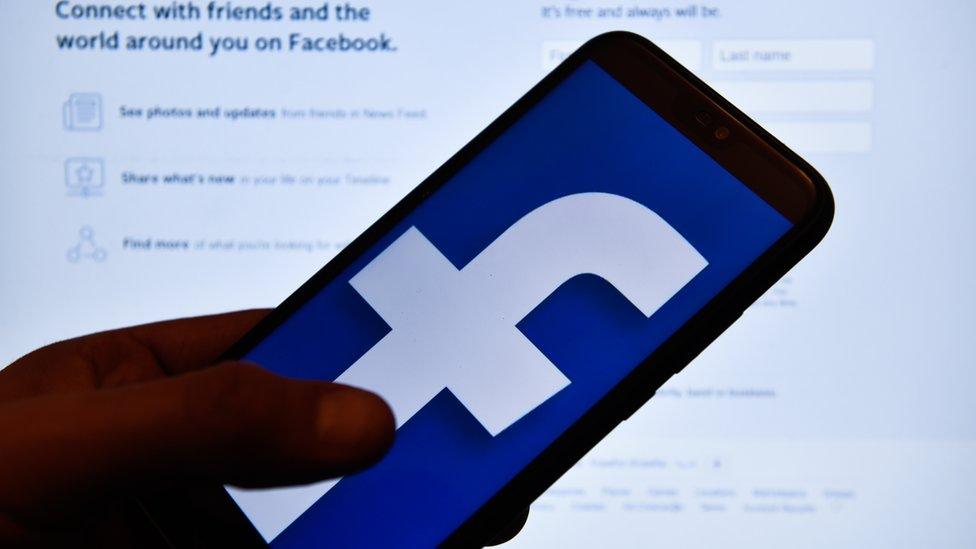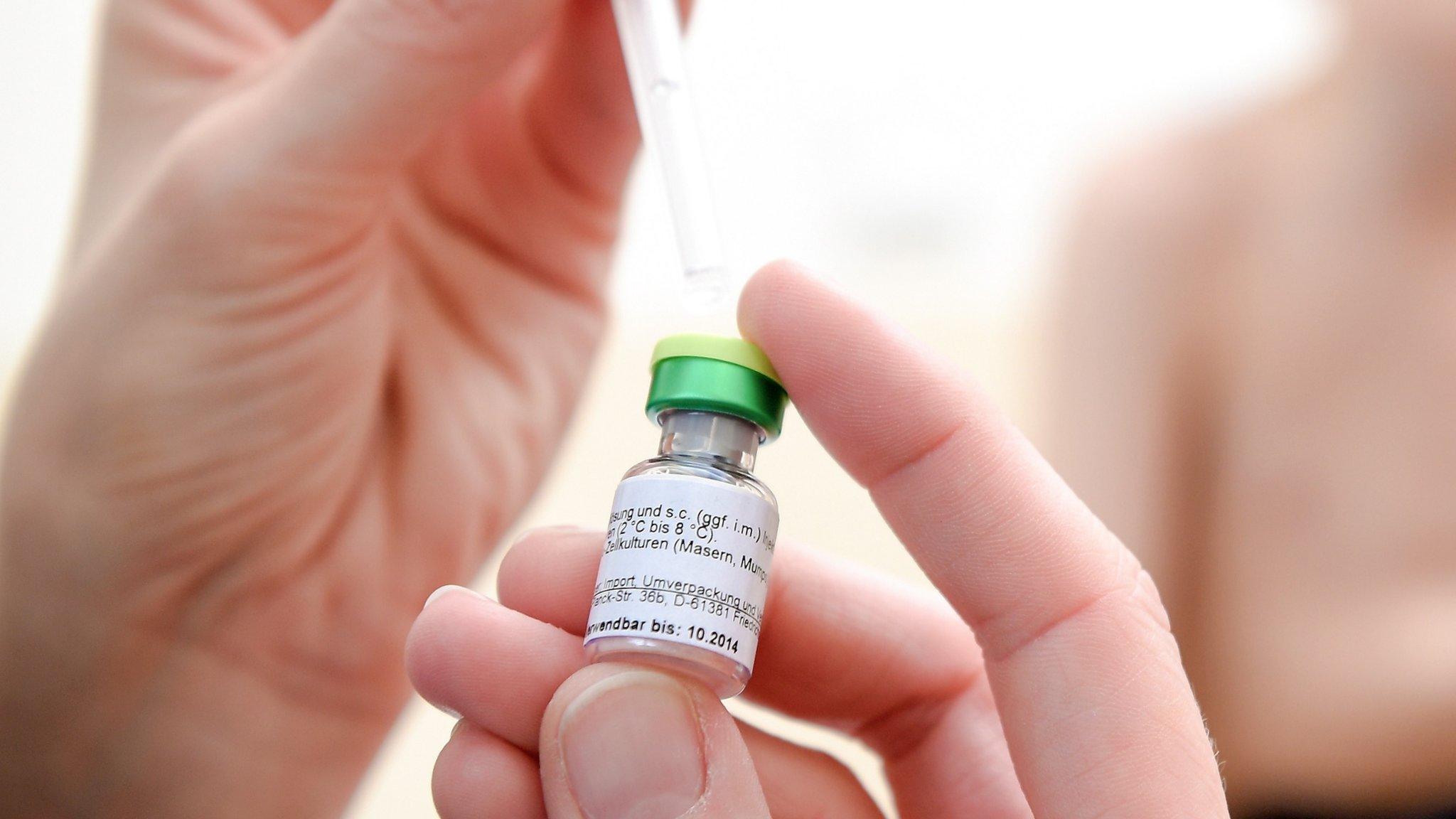European elections 2019: Facebook and Twitter under the spotlight
- Published
- comments

Are Twitter bots controlled by Russia on the march across Europe? And is Facebook full of misinformation designed to influence voters?
As the EU elections approach, researchers have been looking at the role that social networks are playing, and their early cautious verdict is that the level of misuse is relatively low.
Research by the Oxford Internet Institute found that what ít called "junk news" was far less prevalent on Twitter and Facebook than stories from reliable news sources.
However, the study of the kind of information social media users are sharing across seven languages ahead of the vote, did find that individual junk news stories were more likely to be shared on Facebook than the work of mainstream news organisations.
Junk news
Separate research for the BBC by a University of Birmingham expert showed an uptick of apparent Twitter bot creation in early May, with some accounts tweeting on Brexit themes thousands of times.
But Prof Oleksandr Talavera says that Twitter has become much more effective at spotting and closing accounts which break its rules.

Some suspicious accounts with high volumes of tweeting have been suspended.
The Oxford study found that under 4% of stories on Twitter came from junk news sources, defined as outlets publishing deliberately misleading, deceptive or incorrect information. That figure did, however, rise to 21% in Poland.
But on Facebook, while mainstream news was more visible, stories from junk news sources proved far more engaging. In English, for example, the average junk news story got four times as many likes and other Facebook interactions as a story from a professional news organisation.
Junk news which proved popular included suggestions that a Dutch politician wanted a halal beach in The Hague, a story that a Muslim girl had been killed by her family and dumped in a river for being too "Westernised", and a report that Vladimir Putin had offered financial assistance to rebuild Notre Dame Cathedral.
Not Russia
But the study does not point the finger at Russia for spreading misinformation.
"Almost none of the junk we found circulating online came from known Russian sources", says Nahema Marchal, co-author of the report "Instead, it is homegrown, hyper-partisan and alternative media that dominate."
There have been reports of an upswing of automated Twitter accounts - or bots - in the run-up to this week's European elections, so we asked Prof Talavera, who has examined the bot phenomenon, to take a look.
He found a spike in the creation of new Twitter accounts tweeting on Brexit and similar themes around 11 May. Many of the accounts consisted of a name followed by eight numbers and tweeted very frequently.
Which are bots?
One account, @johnie76662158, followed nobody but had tweeted more than 1,300 times in the 10 days after it was created, almost exclusively retweets of Brexit-related material, support for Tommy Robinson and some comments on American politics.
Prof Talavera admits it is very hard to decide exactly which accounts are bots, especially as their creators are getting much smarter at understanding how Twitter detects them.
But he says "based on very rough estimation about 20-25% of newly-created users who talk about political outcome are likely to be bots. However, these numbers seem to be very small compared to the existing Twitter universe".
Under the spotlight
By Monday, the @johnie76662158 account had a message saying it was "temporarily restricted" because there had been some "unusual activity." Other accounts with high volumes of tweeting have been suspended.
Both Twitter and Facebook have set up teams to monitor activity on their platforms in the run-up to the European elections. So far, it appears they have not detected the level of interference from Russian sources or the waves of automated spam tweets seen during the US presidential election and the EU referendum vote in 2016.
But both platforms have proved they have enormous power to intervene in the democratic process. That means that in every election from now on they will be under the spotlight.
- Published29 December 2018

- Published17 May 2019

- Published10 May 2019

